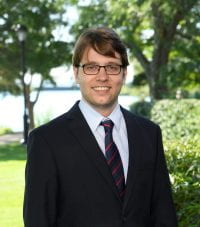
Contact Information
Department of Economics
Northwestern University
2211 Campus Drive
Evanston, IL 60208
Phone: 773-961-6858
carlhallmann@u.northwestern.edu
Website
Education
Ph.D., Economics, Northwestern University, 2023 (expected)
M.Sc., Economics, LMU Munich, 2017
B.Sc., Economics, LMU Munich, 2014
Primary Fields of Specialization
Macroeconomics, Economic History
Secondary Fields of Specialization
Labor Economics
Curriculum Vitae
Job Market Paper
Short-Time Work and The Unemployment Scar
Short-time work is a policy tool which subsidizes employment during recessions. I assess its welfare effects, who benefits most from it, and when it is most effective. For this purpose I develop a heterogeneous agents model, for which the income process is generated by a job ladder search and matching model. I calibrate the model to match the German labor market around the great recession. Key parameters governing the value a worker generates after entering STW are estimated using German social security data in combination with a survey on the use of STW. In my preferred specification the welfare effect of one worker entering STW instead of becoming unemployed is about one third of her yearly output. Workers at the peak of their career benefit most strongly, as they stand to lose job and firm specific knowledge, as well as the high wages they negotiated in the past. I find that the effectiveness of STW depends on the type of crisis an economy undergoes. STW is less beneficial if the crisis is driven by a structural change, financial markets are healthy such that few firms are affected by borrowing constraints, or low wage workers with little firm and task specific human capital are hit. As a consequence the effectiveness of STW varies from crisis to crisis, and it is best used as a discretionary policy tool.
Other Research Papers
Why Britain? The Right Place (in the Technology Space) at the Right Time (with W. Walker Hanlon and Lukas Rosenberger)
Why did Britain attain economic leadership during the Industrial Revolution? We argue that Britain possessed an important but underappreciated innovation advantage: British inventors worked in technologies that were more central within the innovation network. We offer a new approach for measuring the innovation network using patent data from Britain and France in the 18th and early 19th century. We show that the network influenced innovation outcomes and then demonstrate that British inventors worked in more central technologies within the innovation network than inventors from France. Then, drawing on recently-developed theoretical tools, we quantify the implications for technology growth rates in Britain compared to France. Our results indicate that the shape of the innovation network, and the location of British inventors within it, can help explain the more rapid technological growth in Britain during the Industrial Revolution.
Invention and Technological Leadership during the Indsutrial Revolution (with Lukas Rosenberger and Emre E. Yavuz)
This paper provides the first empirical cross-country evidence on inventive activity during the Industrial Revolution. Idiosyncrasies in the French historic patent law allow us to compare invention rates in Britain and France across sectors based on French patent data from 1791 to 1855. Our key result is a robust, positive association of invention rates in Britain and France at the sectoral level. Furthermore, we provide the first quantitative evidence on technological leadership in invention at the sectoral level. The evidence informs a debate about whether the acceleration of technological progress during the Industrial Revolution mainly was a British or a European achievement, which has implications for theories of growth and innovation.
Teaching
ECON-324: Western Economic History (2021,22)
ECON-281: Introduction to Applied Econometrics (2021)
ECON-315: Topics in Economic History (2020)
MMSS-300: Foundations of Mathematical Social Sciences (2018, 19, 20)
References
Prof. Matthias Doepke (Committee Co-Chair)
Prof. Joel Mokyr (Committee Co-Chair)
Prof. Giorgio Primiceri
